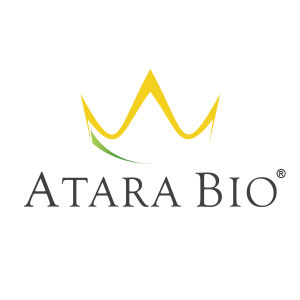Atara Biotherapeutics

- Country
- 🇺🇸United States
- Ownership
- Public
- Established
- 2012-01-01
- Employees
- 225
- Market Cap
- $33.6M
- Website
- http://www.atarabio.com
- Introduction
Atara Biotherapeutics, Inc. is an allogeneic T-cell immunotherapy company, which engages in the development of transformative therapies for patients with serious diseases including solid tumors, hematologic cancers, and autoimmune diseases. It also delivers off-the-shelf treatments to patients with high unmet medical need. Its product pipeline includes Tab-cel, ATA188, ATA2271/ATA3271, and ATA3219. The company was founded by Isaac E. Ciechanover on August 22, 2012 and is headquartered in Thousand Oaks, CA.
FDA Rejects ImmunityBio's Expanded Anktiva Application While Lifting Hold on Atara's Ebvallo Trials
ImmunityBio received an FDA "refusal to file" letter for its application to expand Anktiva's use in bladder cancer patients, causing a 25% stock plunge and prompting calls for agency clarification.
Atara Biotherapeutics Secures $16 Million Funding to Advance Tab-cel BLA Approval
Atara Biotherapeutics has priced a $16 million offering of common stock and pre-funded warrants to institutional investors including Adiumentum Capital Management and EcoR1 Capital.
FDA Issues Warning to Sanofi for API CGMP Deviations; Clinical Hold Placed on Atara Biotherapeutics
The FDA issued a warning letter to Sanofi, citing significant deviations from CGMP standards at its Genzyme facility, potentially leading to regulatory actions.
Atara Biotherapeutics Navigates Regulatory Hurdles and Financial Uncertainty
Atara Biotherapeutics faces an FDA clinical hold on ATA3219 and EBVALLO due to manufacturing issues, delaying product sales and increasing perceived risk.
FDA Approves Novel Combination Therapies for Colorectal Cancer and Mantle Cell Lymphoma
The FDA has approved sotorasib in combination with panitumumab for treating KRAS G12C-mutated metastatic colorectal cancer in adults who have received specific prior chemotherapy regimens.
FDA Places Clinical Hold on Atara Biotherapeutics' Cell Therapy Programs Due to Manufacturing Concerns
The FDA has placed a clinical hold on Atara Biotherapeutics' EBVALLO (tabelecleucel) program and ATA3219, pausing new patient enrollment.
Tabelecleucel Shows Sustained Efficacy in EBV+ PTLD, FDA Decision Expected in January 2025
Tabelecleucel demonstrates a 50.7% objective response rate in patients with relapsed or refractory EBV+ PTLD after transplant, according to Phase 3 ALLELE study results.
Gene and Cell Therapies Show Promise in Treating CNS Disorders
The market for gene and cell therapies targeting CNS disorders was valued at approximately USD 1 billion in 2021 and is projected to grow significantly by 2034.
Cell Therapy and Targeted Therapies Dominate Oncology Advances in Early 2025
The FDA issued a CRL for Atara Biotherapeutics' tabelecleucel due to third-party manufacturing issues, not efficacy or safety data, delaying potential approval for EBV+ PTLD.
CRISPR-Based Diagnostic Enables Rapid Detection of Leukemia Gene Fusions
Researchers have developed a CRISPR-based diagnostic tool for rapid detection of gene fusions in acute promyelocytic leukemia (APL) and chronic myeloid leukemia (CML).
